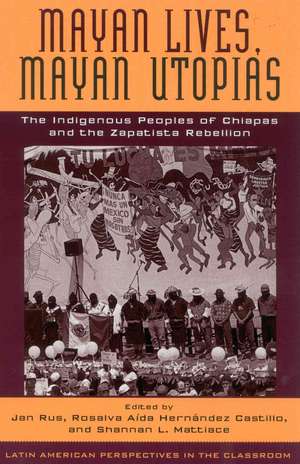Mayan Lives, Mayan Utopias: Latin American Perspectives in the Classroom
en Limba Engleză Paperback – 2 sep 2003
| Toate formatele și edițiile | Preț | Express |
|---|---|---|
| Paperback (1) | 423.87 lei 6-8 săpt. | |
| Rowman & Littlefield – 2 sep 2003 | 423.87 lei 6-8 săpt. | |
| Hardback (1) | 1024.57 lei 6-8 săpt. | |
| Rowman & Littlefield – 7 sep 2003 | 1024.57 lei 6-8 săpt. |
Preț: 423.87 lei
Preț vechi: 550.48 lei
-23% Nou
Puncte Express: 636
Preț estimativ în valută:
81.11€ • 84.48$ • 67.61£
81.11€ • 84.48$ • 67.61£
Carte tipărită la comandă
Livrare economică 29 martie-12 aprilie
Preluare comenzi: 021 569.72.76
Specificații
ISBN-13: 9780742511484
ISBN-10: 0742511480
Pagini: 328
Dimensiuni: 149 x 231 x 20 mm
Greutate: 0.5 kg
Ediția:New.
Editura: Rowman & Littlefield
Seria Latin American Perspectives in the Classroom
ISBN-10: 0742511480
Pagini: 328
Dimensiuni: 149 x 231 x 20 mm
Greutate: 0.5 kg
Ediția:New.
Editura: Rowman & Littlefield
Seria Latin American Perspectives in the Classroom
Notă biografică
Descriere
The Maya Indian peoples of Chiapas had been mobilizing politically for years before the Zapatista rebellion that brought them to international attention. This text explores the ways Indians across Chiapas have carved out autonomous cultural and political spaces in their communities and regions.





















